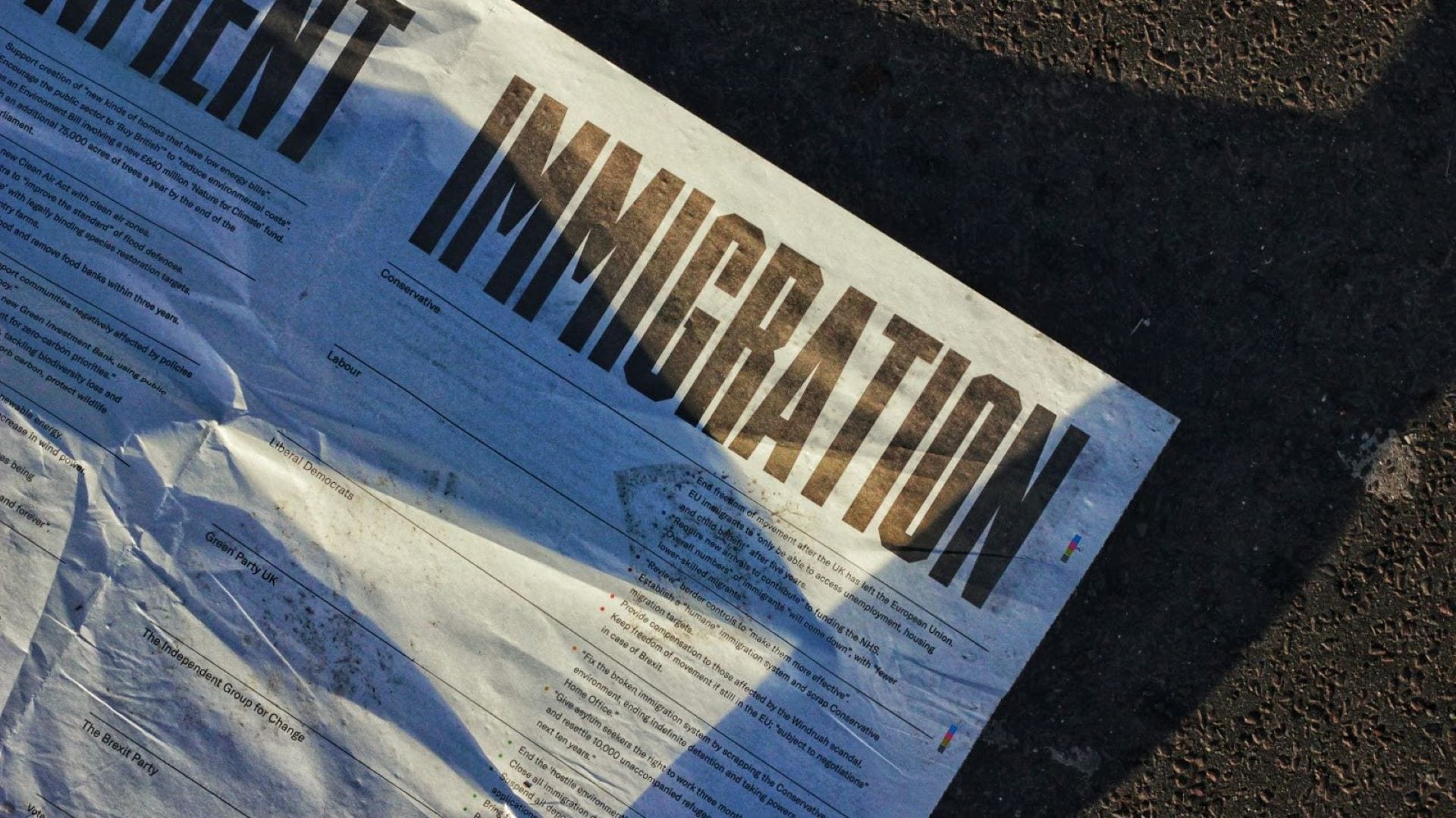In 2018, Congress failed to override president Trump’s veto to establish a national emergency in order to build his border wall. Libertarians and classical liberals seem split on the issue of border security. The Libertarian Party does not support classifying undocumented immigrants as criminals, but this steers many away from the party. Some fully support the wall and claim that if we did not have a welfare state, then open borders may be possible, but in the meantime, we need strong borders. Others are more pessimistic and claim that some cultures are inherently incompatible with American values, even if we did not have a welfare state. Perhaps we should look to one of the most influential classical liberal thinkers, Ludwig Von Mises, for guidance on this question.
Of course, there is disagreement as to what immigration policies Mises would implement. Joe Salerno addresses Mises’ views in a well written analysis, and Lew Rockwell draws policy conclusions based on Salerno’s analysis. Rockwell claims “The open-borderites cannot claim Mises as one of their own.” Are Rockwell and Salerno correct?
Mises on the parallel between tariffs and immigration
Ludwig Von Mises discusses his philosophy at length in Liberalism: The Classical Tradition. He looks at immigration as an economic and social phenomena. Some argue that freedom of movement across national lines leads to economic struggles such as lower wages, a drain on resources, etc. Mises has a simple answer for these arguments.
- “Thus, the effects of restricting [the freedom of movement] are just the same as those of a protective tariff…Looked at from the standpoint of humanity, the result is a lowering of the productivity of human labor, a reduction in the supply of goods at the disposal of mankind. Attempts to justify on economic grounds the policy of restricting immigration are therefore doomed from the outset.”
It is entirely fair to point out that Mises was writing this before the modern welfare state. The welfare system is a common reason libertarians and conservatives oppose open borders. Would Mises adjust his position today?
In 1935, in the midst of the Great Depression, Mises wrote The Freedom to Move: An International Problem. During this time, Keynesian economic theories reigned supreme and justified some of the earliest welfare policies. Mises continued his fight for open immigration in spite of the implementation of the New Deal programs in the United States and similar programs across the world. In this piece, he calls on all nations to break down their travel barriers to avoid social violence. Mises viewed open borders as both a moral imperative and a pragmatic policy proposal.
- “These people will certainly still have just as much cause to complain as before—not over the unequal distribution of raw materials, but over the erection of migration barriers around the lands with more favorable conditions of production. And it may be that one day they will reach the conclusion that only weapons can change this unsatisfactory situation. This is not a problem of raw materials… This is a problem of the right of immigration into the largest and most productive lands […]. Without the reestablishment of freedom of migration throughout the world, there can be no lasting peace.”
Things become more complicated when we start talking about the social parts of this issue. Many point out the apparent negative effects of open borders that Mises foresaw, “In the absence of any migration barriers whatsoever, vast hordes of immigrants from the comparatively overpopulated areas of Europe would, it is maintained, inundate Australia and America. They would come in such great numbers that it would no longer be possible to count on their assimilation”. Mises explains that this is a danger because, “To be a member of a national minority always means that one is a second-class citizen.” Mises says that those who do not speak the native language will be left out of the political process. Thus, the majority can inflict their will upon the minority. Many conclude that Mises would support tight immigration restriction for this reason, but is this right?
Liberty as a means for assimilation
In Liberalism, Mises does not directly state what immigration policies should be implemented in the face of these social problems, but he does lay out his general philosophy for us:
- “The chauvinistic nationalists, who maintain that irreconcilable conflicts of interests exist among the various nations and who seek the adoption of a policy aimed at securing, by force if need be, the supremacy of their own nation over all others, are generally most emphatic in insisting on the necessity and utility of internal national unity… Now this demand for domestic unity the liberal by no means opposes. On the contrary: the demand for peace within each nation was itself an outcome of liberal thinking.”
In other words, what brought about peace and tranquility in the modern nations was not legislation, but the adoption of liberal ideals. He demonstrates this again in his argument against the “fire and sword” of colonialism.
- “If, as we believe, European civilization really is superior to that of the primitive tribes of Africa or to the civilizations of Asia—estimable though the latter may be in their own way—it should be able to prove its superiority by inspiring these peoples to adopt it of their own accord. Could there be a more doleful proof of the sterility of European civilization than that it can be spread by no other means than fire and sword?”
He points out some social problems open borders might reap, yes, but he also lays out the catastrophic consequences of keeping them closed.
- “As long as nations cling to protective tariffs, immigration barriers, compulsory education, interventionism, and statism, new conflicts capable of breaking out at any time into open warfare will continually arise to plague mankind.”
For these reasons it is highly doubtful Mises would ever support immigration restrictions. Mises seeked furthering the well-being of all in the world, what he called “the cosmopolate.” This included a free economy, a limited government, the right to self-determination, and the freedom of movement. The classical liberal recognizes the inability of the state to maintain peace. So we must ask ourselves whether we should pursue the peaceful way of the cosmopolate or the “fire and sword.”
This piece solely expresses the opinion of the author and not necessarily the organization as a whole. Students For Liberty is committed to facilitating a broad dialogue for liberty, representing a variety of opinions.








